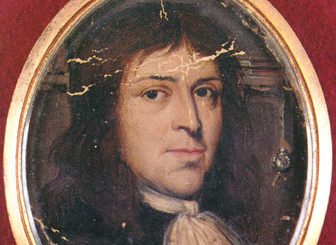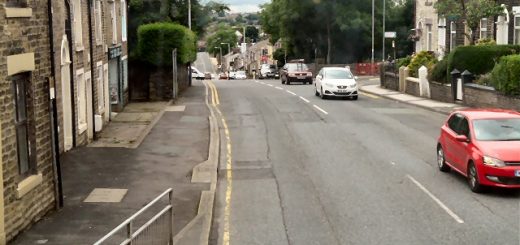Dr Simon Forman
Dr Simon Forman was an Elizabethan occultist, and alternative medical practitioner in London. He was a quack physician and surgeon, who spent time in jail for occult practices and prescribing dangerous potions, was banned from practicing medicine, and implicated in murder after his death.
 All this being said the London people held him in high regard, mainly because he bravely stayed in London during a plague outbreak, and cured himself and others of the disease. The extensive records of his life, including his many occult experiments are held in the Bodleian Library in Oxford.
All this being said the London people held him in high regard, mainly because he bravely stayed in London during a plague outbreak, and cured himself and others of the disease. The extensive records of his life, including his many occult experiments are held in the Bodleian Library in Oxford.
Dr Simon Forman was born on 30 December 1552 in Quidhampton. At the age of nine he went to a free school in the Salisbury area. Simon did not spend long here, and was forced to leave after two years following the death of his father on 31 December 1563.
For the next ten years of his life Simon was apprenticed to Matthew Commin, a local merchant. Commin traded in cloth, salt and herbal medicines, and it was during his time as a young apprentice that Forman started to learn about herbal remedies. After arguments with Mrs Commin, Simon found his apprenticeship terminated, and he moved to Oxford to live with cousins. He spent what he recorded as an unhappy year at Magdalene College, and then left Oxford after a year with the coming of the plague.
For the next few years Forman held several jobs, including that of a schoolteacher in the Salisbury area. In 1579 he realised his future lay in the acquisition of occult knowledge, and he set about his occult experiments and research, in the hope of becoming a great magician.
By the time he moved to London in 1592 he had already served time in jail for occult practices, which were frowned upon at the time (John Dee, a better known contemporary, had already served time in prison for his astrological workings). In London he set up an alternative medical practice in Billingsgate, fulfilling the role of both physician and surgeon, seen as two very separate professions by his medical peers.
His treatments were astrologically based. He used astrology to diagnose illness as well as to determine when the treatment course should take place. As a new practitioner in London he had few contacts within the caste society, and his surgery struggled financially. When the plague gripped London in 1592 and 1594, Dr Forman remained in the city whilst a great many members of the medical profession left. This act of courage (although other circumstances may have been behind his stay) aided his reputation, and during those days he saved many lives, including his own; After contracting the plague, Dr Forman cured himself with his own medicinal waters, quite a feat and one that raised his profile in the eyes of the London people.
As his fame and popularity grew the Royal College of Physicians in London decided stop him practicing because he was not licensed. They objected to his alternative medicines, and examined Formans knowledge of anatomy. The examiners found Simon’s grasp of accepted medicine and anatomy inadequate, and at times laughable. They refused to give him a license to practice medicine, banning him from the profession and levying a fine against him.
Nine months later Forman was found to have prescribed a potion to a man who subsequently died, and Simon was given a custodial sentence. After seven years of disputes with the College of Physicians, Simon Forman was eventually given a license in 1603 by Cambridge University. Although it is not clear on what grounds.
His attempts to become a great magician and alchemist were not as successful as his medical practice. Although he managed to summon the spirit of a black dog on several occasions, he never managed to contact a spirit he could communicate with. His attempts to produce the Philosophers Stone, as with many of his contempories, proved to be an expensive failure.
Dr Forman kept extensive records about all aspects of his life. These cover his love of Shakespeare, his occult experiments, details of his disputes with the College of Physicians, his servants lives, details of his patients and even his own sex life. They form an excellent picture of life in London during the late 16th and early 17th Century. His writings are held in the Bodleian Library in Oxford.
He prophesied his own death the week before it occurred and told his wife. On the day of his death, a Thursday in September 1611, he keeled over in his boat whilst crossing the Thames saying, “Am impost, an impost” before dying. His death was documented by another astrologer of that time, William Lilly.
Three years following his death, Forman was implicated in the murder of Sir Thomas Overbury, by his previous association with the two murderesses.
Overbury was the advisor of Robert Carr, a favourite in Court. He died in September 1613 whilst serving a jail sentence in the Tower of London for refusing the appointment of Ambassador to Russia. In 1615 the trial of Lady Frances Dr Simon FormanHoward (Lady Essex), and her good friend Anne Turner, insinuated that Dr Forman had somehow corrupted the women whilst they were his patients. (Apparently he had given them aid in making the earl of Essex impotent). Lady Essex was unhappily married and wanted to be with Robert Carr, but Overbury had spoken against this, and this had led to his murder. Forman’s wife and records were called to court, and the end result saw Anne Turner paying for the crime, Lady Essex being banned from Court then forgiven, and Forman having his reputation soiled.
Forman has been described as:
‘Devil Forman’ by Chief Justice Edmund Coke during the Overbury murder case.
“Impudent impostor’ by the College of Physicians in London.
‘Oracle Forman’ by the dramatist Ben Jonson.




Recent Comments